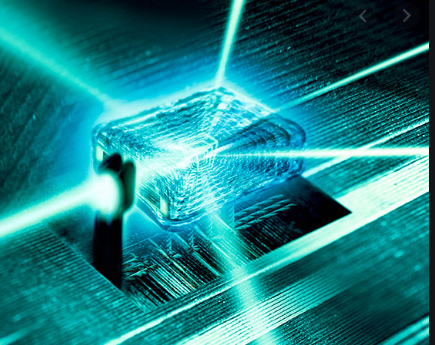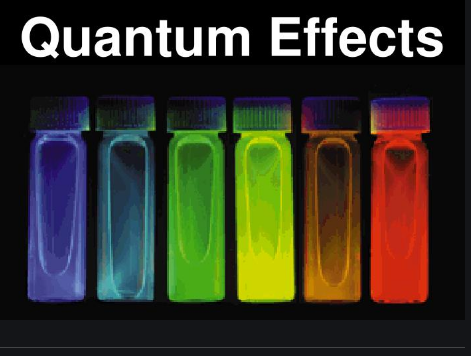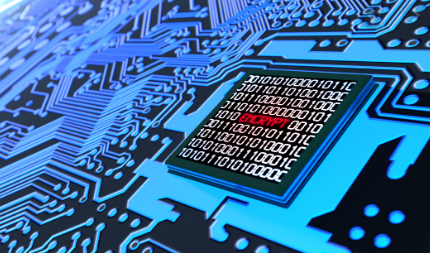Ever wonder how quantum computing is different? Stay tuned and I will explain.

A quantum computer is like a classical computer in many ways. It has a memory which consists of a sequence of bits, each called a qubit. But each qubit can be in a superposition of all possible input patterns which means that a quantum computer can internally compute solutions for all possible input patterns in parallel.
That is it can compute the answer to every possible question in the time that a classical computer can discover the answer to just one such question.
The new computing architectures we can expect to see gain traction over the next decade will also be significantly different. Quantum computers, which will be able to create almost unimaginable large computing spaces, will enable us to simulate physical systems. Neuromorphic chips, which can be thousands of times more energy-efficient than digital chips, will enable us to put computing power at the edge of systems, rather than the center or the cloud.
In short, what these inflection points add up to is a new era of innovation that will be vastly different than what we’ve become used to over the past few decades. That is, in fact, what makes an inflection point so important and powerful. What comes after ends up looking vastly different than what came before.
Galileo once said that “All truths are easy to understand once they are discovered; the point is to discover them.” Great scientists uncover those obvious, but unexpected truths to win hearts and sell ideas.
That in and of itself is exciting but not very useful because (save exploiting interference between all these internally computed solutions) when a quantum computer is measured we only see the memory in one given state of 1’s and 0’s (not all possible states).
But the manipulation of memory in a quantum computer can be imagined to be done in parallel. Each operation performed on a quantum computer doesn’t change one bit unless carefully restricted it can change multiple bits.
So you get another performance improvement here. And the more memory you have the bigger this performance improvement can be.
Why is it important? Because there are questions we might want to ask which a classical computer couldn’t answer in the lifetime of the universe, but which a large enough and effective enough (two big caveats) quantum computer could answer in seconds.
It would make feasible algorithms that currently are totally impractical.
Quantum computing is important because it would allow certain tasks to be done much faster than using classical computing. For example, it would allow the breaking of all the current public-key cryptography that is used to secure the Internet.
Quantum computing uses quantum entanglement of qubits to operate simultaneously on exponentially many bit combinations to produce a probabilistic result. The trick in developing quantum algorithms is to make the probability of a correct result as large as possible, then verify the result with classical computations.
What is quantum computing?
Quantum computing is essentially harnessing and exploiting the amazing laws of quantum mechanics to process information. A traditional computer uses long strings of “bits,” which encode either a zero or a one.
A quantum computer, on the other hand, uses quantum bits, or qubits.
What’s the difference? Well, a qubit is a quantum system that encodes the zero and the one into two distinguishable quantum states. But, because qubits behave quantumly, we can capitalize on the phenomena of “superposition” and “entanglement.”
It’s OK to be a bit baffled by these concepts since we don’t experience them in our day-to-day lives. It’s only when you look at the tiniest quantum particles – atoms, electrons, photons and the like – that you see intriguing things like superposition and entanglement.
Superposition is essentially the ability of a quantum system to be in multiple states at the same time — that is, something can be “here” and “there,” or “up” and “down” at the same time.
Entanglement is an extremely strong correlation that exists between quantum particles — so strong, in fact, that two or more quantum particles can be inextricably linked in perfect unison, even if separated by great distances.
The particles are so intrinsically connected, they can be said to “dance” in instantaneous, perfect unison, even when placed at opposite ends of the universe.
This seemingly impossible connection inspired Einstein to describe entanglement as “spooky action at a distance.”
Why do these quantum effects matter?
First of all, they’re fascinating. Even better, they’ll be extremely useful to the future of computing and communications technology.

Thanks to superposition and entanglement, a quantum computer can process a vast number of calculations simultaneously. Think of it this way: whereas a classical computer works with ones and zeros, a quantum computer will have the advantage of using ones, zeros and “superpositions” of ones and zeros.
Certain difficult tasks that have long been thought impossible (or “intractable”) for classical computers will be achieved quickly and efficiently by a quantum computer.
What can a quantum computer do that a classical computer can’t?
Factoring large numbers, for starters. Multiplying two large numbers is easy for any computer. But calculating the factors of a very large (say, 500-digit) number, on the other hand, is considered impossible for any classical computer.
In 1994, a mathematician from the Massachusetts Institute of Technology (MIT) Peter Shor, who was working at AT&T at the time, unveiled that if a fully working quantum computer was available, it could factor large numbers easily.
How can quantum mechanics create these ultra-secret keys?
Quantum key distribution relies on another interesting property of quantum mechanics: any attempt to observe or measure a quantum system will disturb it.
The Institute for Quantum Computing (IQC) is home to one of the few prototypes in the world. “Alice,” a device located at IQC headquarters, receives half of the entangled (highly correlated) photon pair generated by a laser on the roof of a building at the University of Waterloo.
“Bob” is housed at the nearby Perimeter Institute, and receives the other half of the entangled photons.
Photons have a unique measurable property called polarization (which should sound familiar to any connoisseur of sunglasses).
So quantum technology is still years away?
No, quantum technologies are already in use! Quantum computers are already commercially available, and will greatly benefit from new research (scientists are currently pursuing quantum encryption through free space via satellite).

Although a fully perfected and functioning quantum computer is a longer-term goal, many fundamental and practical discoveries have been made in the name of quantum computing. Quantum sensors and actuators will allow scientists to navigate the nano-scale world with remarkable precision and sensitivity.
Such tools will be invaluable to the development of true quantum information processors. The quantum revolution is already underway, and the possibilities that lie ahead are limitless.
While the power of quantum computing is impressive, it does not mean that existing software simply runs a billion times faster. Rather, quantum computers have certain types of problems which they are good at solving, and those which they aren’t.
Below are some of the primary applications we should expect to see as this next generation of computers becomes commercially available.
Artificial intelligence
A primary application for quantum computing is artificial intelligence (AI). AI is based on the principle of learning from experience, becoming more accurate as feedback is given until the computer program appears to exhibit “intelligence.”
This feedback is based on calculating the probabilities for many possible choices, and so AI is an ideal candidate for quantum computation. It promises to disrupt every industry, from automotive to medicine, and it’s been said AI will be to the twenty-first century what electricity was to the twentieth.
Molecular modeling
Another example is the precision modeling of molecular interactions, finding the optimum configurations for chemical reactions. Such “quantum chemistry” is so complex that only the simplest molecules can be analyzed by today’s digital computers.
Chemical reactions are quantum in nature as they form highly entangled quantum superposition states. But fully-developed quantum computers would not have any difficulty evaluating even the most complex processes.
Cryptography
Most online security currently depends on the difficulty of factoring large numbers into primes. While this can presently be accomplished by using digital computers to search through every possible factor, the immense time required makes “cracking the code” expensive and impractical.
In August 2015 the NSA began introducing a list of quantum-resistant cryptography methods that would resist quantum computers, and in April 2016 the National Institute of Standards and Technology began a public evaluation process lasting four to six years.
Financial modeling
Modern markets are some of the most complicated systems in existence. While we have developed increasingly scientific and mathematical tools to address this, it still suffers from one major difference between other scientific fields: there’s no controlled setting in which to run experiments.
Weather forecasting
NOAA Chief Economist Rodney F. Weiher claims (PowerPoint file) that nearly 30 percent of the US GDP ($6 trillion) is directly or indirectly affected by weather, impacting food production, transportation, and retail trade, among others. The ability to better predict the weather would have enormous benefits to many fields, not to mention more time to take cover from disasters.
The bottom line
Investors are now scrambling to insert themselves into the quantum computing ecosystem, and it’s not just the computer industry: banks, aerospace companies, and cybersecurity firms are among those taking advantage of the computational revolution.
While quantum computing is already impacting the fields listed above, the list is by no means exhaustive, and that’s the most exciting part. As with all new technology, presently unimaginable applications will be developed as the hardware continues to evolve and create new opportunities.

Read more from our library:
The Business Intelligence Process Part 3 Competitive Analysis
10 Entrepreneur Lessons You Need to Know